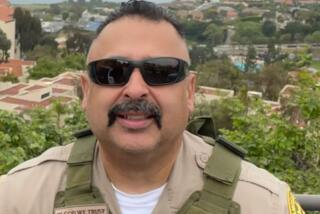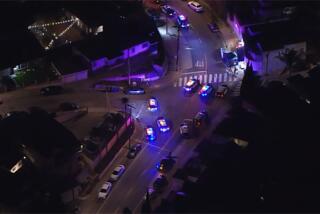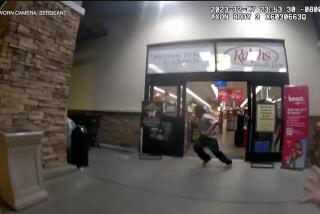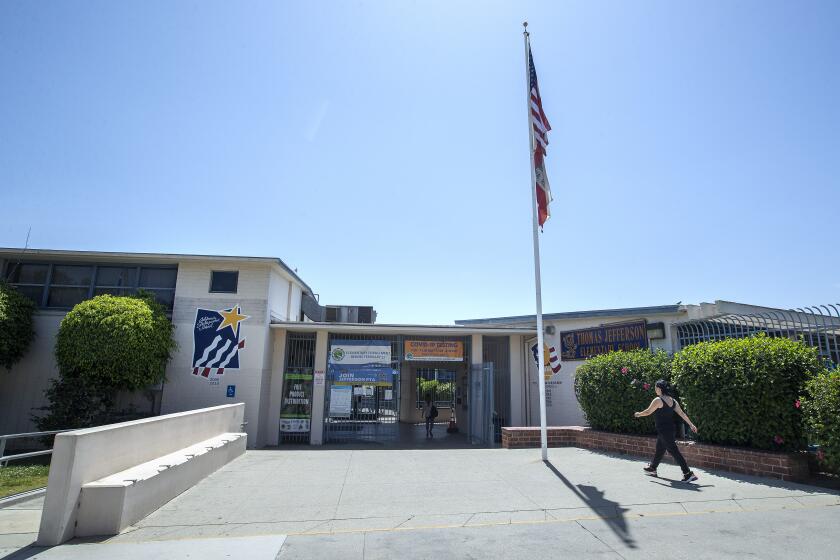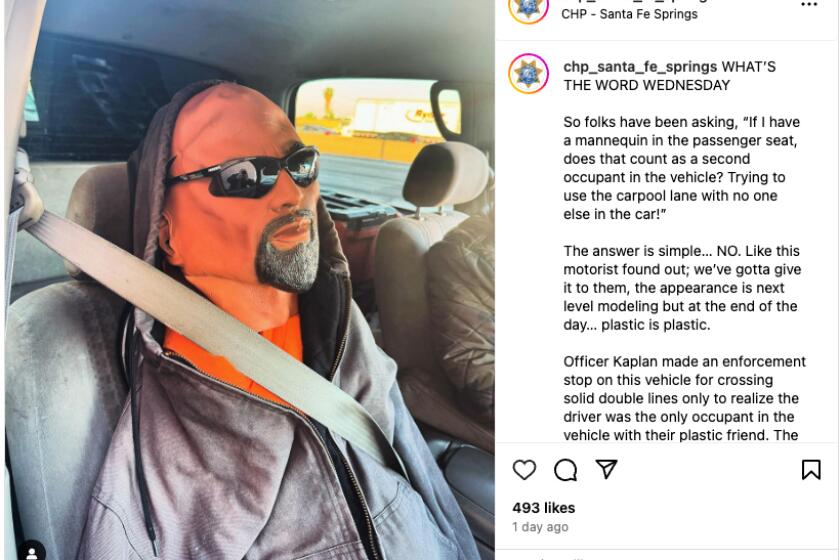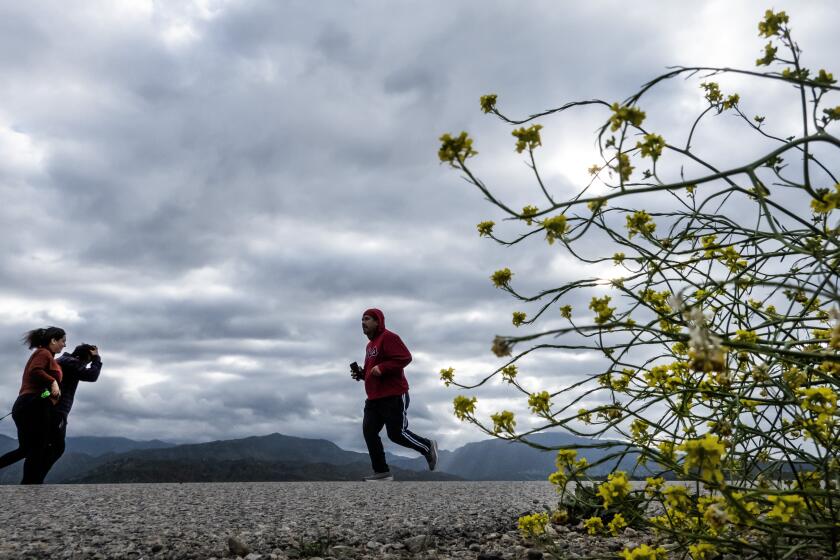Christopher Dorner dispatch logs released
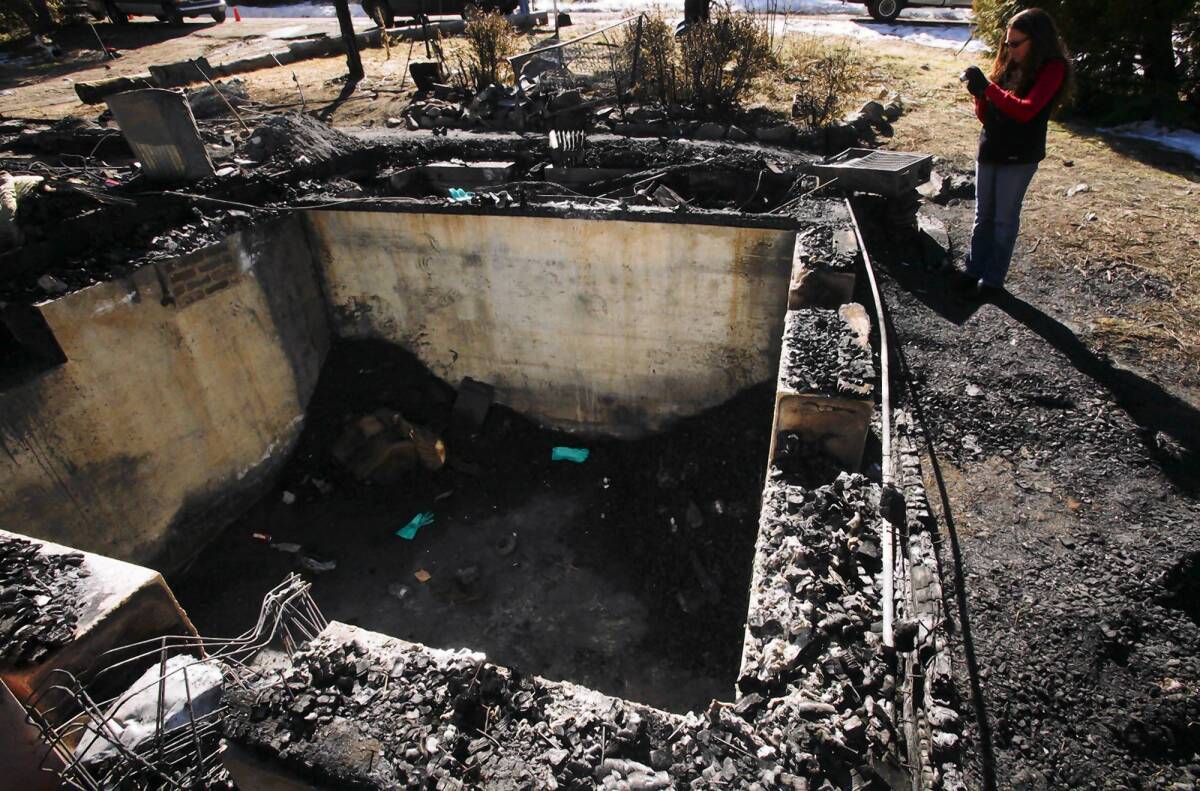
Suspected killer Christopher Dorner spent his final hours barricaded inside a mountain cabin splattered with blood, presumably his own, and no chance for escape before a single gunshot echoed from inside the vacation home near Big Bear.
The blood-splattered walls inside the cabin were revealed during the Feb. 12 standoff when a robotic police tractor started tearing down the cabin walls to give officers a clean view inside and were seen more than half an hour before the cabin caught fire after police fired seven “pyrotechnic” tear gas canisters into the cabin.
Those were among the many details revealed in police dispatch logs released by the San Bernardino County Sheriff’s Department on Friday that gave a minute-by-minute account of the chase down mountain roads and the shootout that left one sheriff’s detective dead and a deputy seriously wounded.
DOCUMENT: Police dispatch logs from Dorner incident
Dorner, a fired L.A. police officer suspected of killing four people and wounding three others, died during the standoff from what appeared to be a self-inflicted gunshot wound to his head, according to coroner’s officials.
The written text of dispatch logs, which had names and other identifying information redacted, started at 12:23 p.m. on that Tuesday with the cellphone call to police from Karen Reynolds. Reynolds, who owns vacation condominiums near the Bear Mountain ski resort, reported that she and husband Jim “were tied up by Chris Dorner” and that the suspect left in their purple Nissan Rogue 15 to 30 minutes before.
Just over an hour later, after Dorner exchanged gunfire with state Fish and Wildlife officers as he headed down the mountain, police at 1:28 p.m. called in a report of inbound automatic gunfire from a cabin near Angelus Oaks.
Officers on the scene asked for an armored vehicle to protect and rescue two officers down in the “kill zone” in a clearing outside the cabin. Within 10 minutes, the wounded officers were loaded onto a black Chevrolet pickup and taken away as a rescue helicopter was coming in, the dispatch logs showed.
Sheriff’s Det. Jeremiah MacKay was killed in the shootout, and Deputy Alex Collins was seriously wounded. Sheriff John McMahon said the two were “ambushed” by Dorner as they searched the area around the cabins.
According to the dispatch logs, the owners of the cabin and their relatives called police during the standoff to give them details of what was inside, including an all-concrete basement that had no exit. The were no weapons inside the cabin, or any television or phone.
At 3:45 p.m., the police tractor started tearing down the cabin’s walls.
“Heavy blood spatter on wall inside,” said one dispatch report a minute later. There were also reports of blood splatter in another corner and on mattresses against the wall.
At 4:05 p.m., police reported green smoke inside the cabin — smoke canisters apparently set off by Dorner. Five minutes later, a sheriff’s tactical unit started firing in gas “burners” — the pyrotechnic tear-gas canisters. The canisters are called burners because of their tendency to ignite fires.
Within minutes, the cabin was on fire, the dispatch logs show.
At 4:20 p.m., the police dispatch logs report “one shot fired from inside.” Police previously described that shot as sounding different from other gunfire coming from inside the house and suspect that it was Dorner taking his own life.
The cabin was quickly engulfed in flames but still too dangerous for firefighters to be called in. Ammunition from inside continued to explode.
The building burned to its foundation. Dorner’s body was found in the basement.
Also Friday, the lawyer for the camp ranger carjacked by Dorner shortly before the shootout said he plans to sue Los Angeles to collect the entire $1-million reward offered for the fugitive.
Attorney Allen L. Thomas said his client, Rick Heltebrake, filed a proper claim to collect the reward offered by Los Angeles Mayor Antonio Villaraigosa and funded by various entities and accused the city of trying to “walk away” from considering that request.
Earlier this month, the Los Angeles Police Department announced that three retired judges will determine who gets the reward. Claimants had until Friday to request their portion of the money.
More to Read
Start your day right
Sign up for Essential California for news, features and recommendations from the L.A. Times and beyond in your inbox six days a week.
You may occasionally receive promotional content from the Los Angeles Times.
